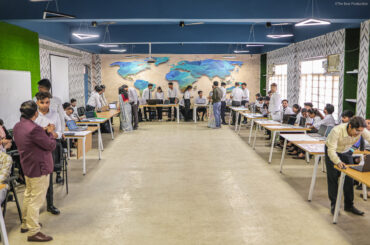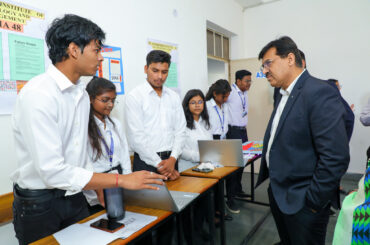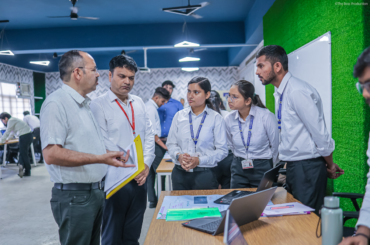Introduction
Typically spanning 3-4 years at the undergraduate level, courses in computer science engineering delve into a variety of subjects crucial for building a robust foundation in the theoretical and practical aspects of computing. Core subjects encompass mathematics, including calculus, linear algebra, and discrete mathematics, along with fundamental sciences. Comprehensive computer science courses cover areas such as programming, data structures, algorithms, computer architecture, operating systems, databases, and computer networks.
The curriculum also covers advanced topics such as software engineering, artificial intelligence, machine learning, and cyber security. Practical skills are honed through laboratory work, programming assignments, and project-based learning.
In the final year, students often undertake a significant project that synthesizes their knowledge and skills.
Postgraduate programs, typically 1-2 years long, build on this foundation with advanced coursework and research opportunities in specialized areas like data science, AI, and cloud computing, culminating in a thesis or substantial research project.
Doctoral programs focus on original research, requiring several years of study, coursework in advanced topics, comprehensive exams, and a dissertation.
Throughout all levels, the emphasis is on developing problem-solving skills, technical proficiency, and the ability to adapt to rapidly evolving technologies.
Some of the most opted courses in India and St. Andrews college or different Engineering college or Management colleges are as follows:-
CSE (Computer Science Engineering) Duration
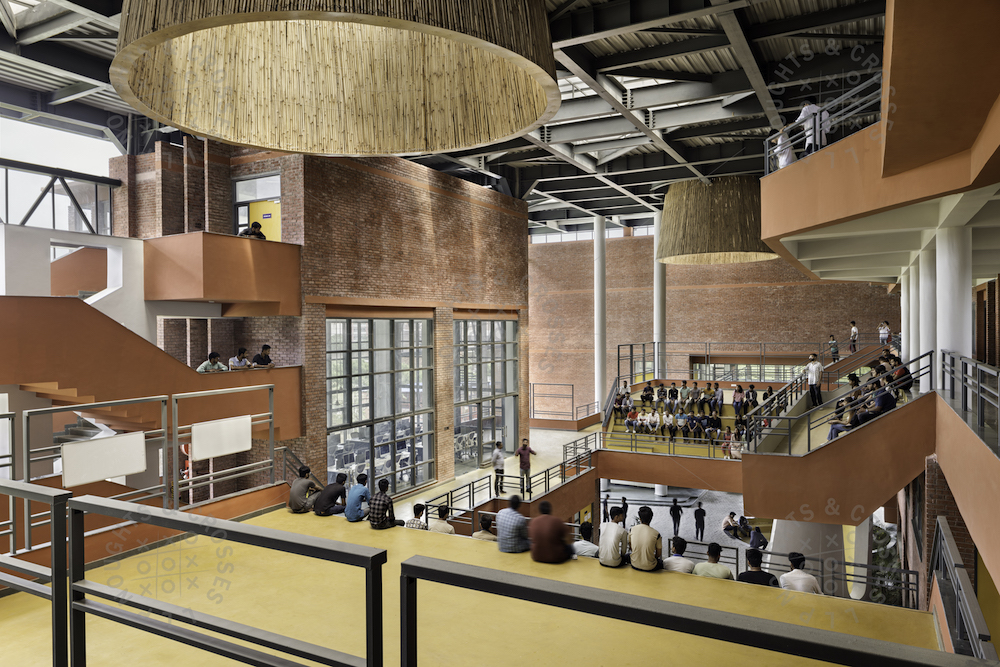
Computer Science and Engineering (CSE) typically spans four years at the undergraduate level, culminating in a Bachelor of Technology (BTech) or Bachelor of Engineering (BE) degree. This duration includes a comprehensive curriculum covering foundational subjects like programming, algorithms, data structures, computer architecture, and software engineering.
Students also delve into specialized areas such as artificial intelligence, cyber security, and machine learning. Practical learning through labs, projects, and internships complements theoretical knowledge.
Postgraduate programs, including Master’s and Doctoral degrees, extend the study further, focusing on advanced research and specialization in specific fields. CSE degrees equip graduates with versatile skills crucial for thriving in the tech-driven world.
Highlights of Computer Science Engineering Course
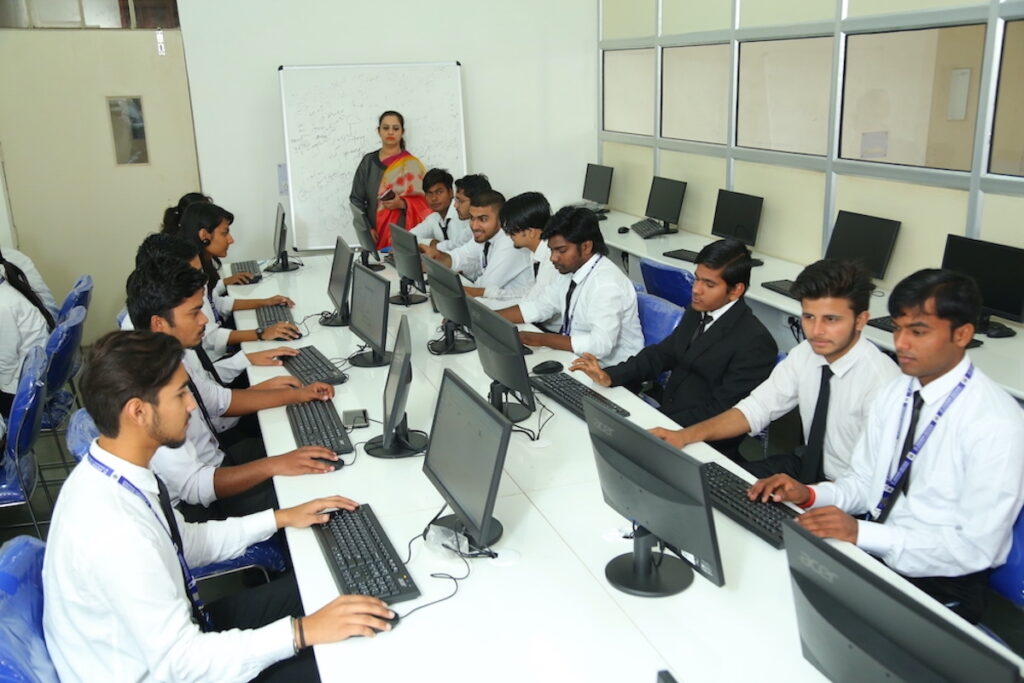
Here are some key highlights of pursuing a course in Computer Science Engineering:
Versatile Career Opportunities
CSE graduates have a wide range of career options across multiple industries such as software development, IT services, finance, healthcare, telecommunications, e-commerce, gaming, and more.
Foundation in Core Concepts
The curriculum covers fundamental concepts in computer science, including core computer science concepts such as data structures, algorithms, computer architecture, operating systems, and software engineering principles.
Hands-on Learning
Emphasis on practical learning through lab sessions, projects, and internships helps students apply theoretical knowledge to real-world problems and gain valuable industry experience.
Emerging Technologies
Exposure to cutting-edge technologies such as artificial intelligence (AI), machine learning (ML), cybersecurity, blockchain, cloud computing, and Internet of Things (IoT) prepares students for the future demands of the tech industry.
Problem-Solving Skills
The course focuses on developing analytical and problem-solving skills, essential for tackling complex computational problems and designing efficient solutions.
Interdisciplinary Opportunities
CSE intersects with other fields like mathematics, electronics, and mechanical engineering, offering interdisciplinary learning and collaboration opportunities.
Industry-Relevant Skills
Acquisition of in-demand skills such as programming proficiency, database management, web development, network security, and software testing enhances employability in the competitive job market.
Research and Innovation
Opportunities for research and innovation through thesis projects, seminars, and participation in hackathons or coding competitions foster creativity and critical thinking among students.
Global Recognition
CSE qualifications are globally recognized, enabling graduates to pursue career opportunities and higher education abroad, collaborate on international projects, or work with multinational tech companies.
Continuous Learning
The dynamic nature of technology requires lifelong learning, and CSE courses instill a mindset of continuous skill development and adaptation to new technologies and industry trends.
Importance of Computer Science Engineering

Computer Science Engineering (CSE) holds immense importance in today’s world as it underpins virtually every aspect of modern life.
Its significance can be summarized in several key points:
Rapid Technological Advancement
Computer Science Engineering (CSE) plays a crucial role in driving technological innovation. From smartphones to artificial intelligence, advancements in CSE have transformed multiple industries and aspects of daily life.
High Demand and Career Opportunities
The demand for computer science professionals is consistently high across the globe. Careers in software development, cybersecurity, data analysis, data science, artificial intelligence, and more offer lucrative job opportunities with significant growth potential.
Solving Complex Problems
CSE equips individuals with problem-solving skills and the ability to design efficient algorithms. This expertise is essential in addressing complex challenges in fields such as healthcare, finance, education, and transportation.
Foundation of Modern Economy
The modern economy is heavily reliant on technology and computing. E-commerce, online banking, digital marketing, and many other sectors depend on robust computer systems and software solutions developed by computer science developers.
Innovation and Entrepreneurship
CSE fosters innovation and entrepreneurship. Many successful tech startups, such as Google, Facebook, and Amazon, were founded by computer science developers. The field encourages creative thinking and the development of new technologies.
Impact on Other Fields
Computer science intersects with various disciplines, including biology (bioinformatics), physics (computational physics), and environmental science (climate modeling). This interdisciplinary approach leads to breakthroughs and advancements across different fields.
Enhancing Communication
The development of communication technologies, including the internet, social media platforms, and mobile applications, has revolutionized how people connect and interact globally. These advancements are largely driven by computer science engineers.
Automation and Efficiency
Automation technologies, powered by computer science, enhance productivity and efficiency in industries such as manufacturing, agriculture, and logistics. This leads to cost savings and improved quality of products and services.
Contribution to Research and Development
CSE contributes significantly to research and development. High-performance computing, machine learning, and big data analytics enable researchers to analyze vast amounts of data and make groundbreaking discoveries.
Building a Digital Society
The ongoing digital transformation of societies depends on the expertise of computer science engineers. They develop the infrastructure and applications that support smart cities, e-governance, digital education, and more.
Computer Science Engineering Syllabus and Subjects
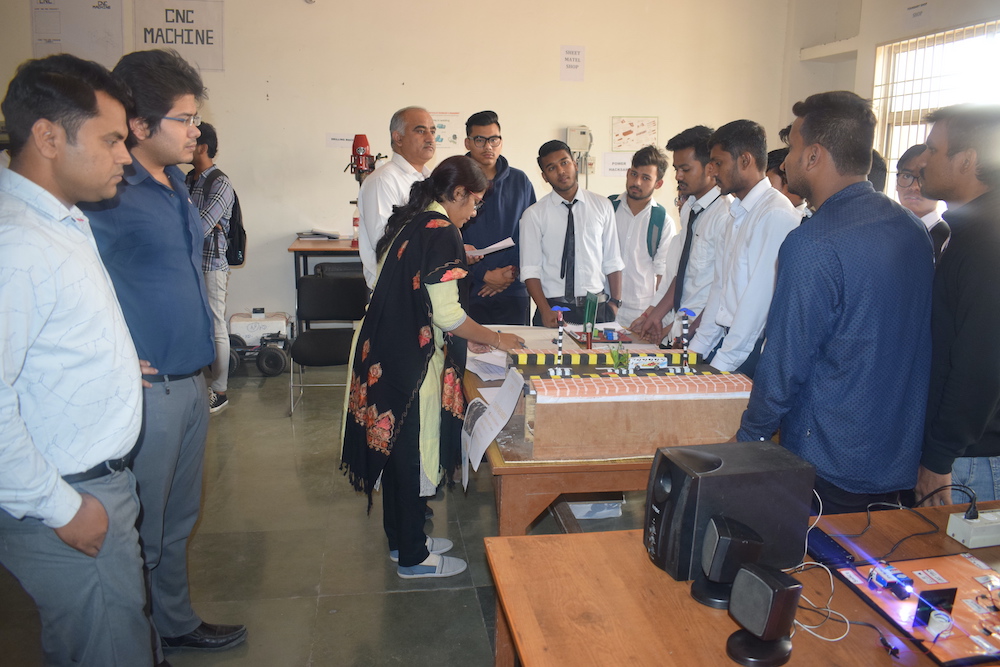
Here a general overview of common subjects and their syllabus typically covered in a CSE undergraduate (B.Tech/B.E.) program:
1st Year
Semester 1
- Mathematics I: Calculus, linear algebra
- Physics I: Mechanics, waves, optics
- Chemistry: Basics of inorganic, organic, and physical chemistry
- Basic Electrical Engineering: Fundamentals of electrical circuits and electronics
- Programming in C: Introduction to programming concepts using C
- Engineering Mechanics: Statics and dynamics
- English for Communication: Communication skills and technical writing
Semester 2
- Mathematics II: Differential equations, probability, and statistics
- Physics II: Thermodynamics, electromagnetism
- Engineering Graphics: Technical drawing and CAD
- Basic Electronics Engineering: Semiconductors, diodes, transistors
- Data Structures: Lists, stacks, queues, trees, graphs
- Environmental Science: Ecosystems, pollution control
- Professional Ethics: Introduction to professional and ethical responsibilities
2nd Year
Semester 3
- Discrete Mathematics: Set theory, logic, combinatorics, graph theory
- Digital Logic Design: Boolean algebra, logic gates, flip-flops
- Computer Organization and Architecture: CPU, memory hierarchy, I/O systems
- Object-Oriented Programming: OOP concepts using Java or Python
- Database Management Systems: SQL, relational databases, normalization
- Operating Systems: Process management, memory management
Semester 4
- Design and Analysis of Algorithms: Complexity analysis, sorting, searching algorithms
- Microprocessors and Microcontrollers: Architecture, programming, interfacing
- Theory of Computation: Automata theory, formal languages, Turing machines
- Software Engineering: Software development life cycle, project management
- Computer Networks: OSI model, TCP/IP, network protocols
- Web Technologies: HTML, CSS, JavaScript
3rd Year
Semester 5
- Compiler Design: Lexical analysis, syntax analysis, parsing techniques
- Artificial Intelligence: Machine learning, neural networks, natural language processing
- Computer Graphics: Rendering, modeling, animation
- Advanced Database Management Systems: Data warehousing, OLAP
- Elective I: (e.g., Mobile Computing, Bioinformatics)
Semester 6
- Software Testing and Quality Assurance: Testing methodologies, quality assurance processes
- Big Data Analytics: Hadoop, MapReduce, data visualization
- Cloud Computing: Cloud models, virtualization, cloud services
- Internet of Things (IoT): IoT architecture, protocols, applications
- Cyber Security: Network security, cryptography, ethical hacking
- Elective II: (e.g., Robotics, Quantum Computing)
4th Year
Semester 7
- Distributed Systems: Distributed algorithms, consistency models
- Information Retrieval: Search engines, indexing, ranking algorithms
- Elective III: (e.g., Human-Computer Interaction, Blockchain Technology)
- Major Project Phase I: Start of capstone project
- Industrial Training/Internship: Practical experience in industry
Semester 8
- Advanced Topics in CSE: Seminar on latest trends and research
- Elective IV: (e.g., Computational Biology, Augmented Reality)
- Major Project Phase II: Completion and presentation of capstone project
- Comprehensive Viva-Voce: Oral examination covering entire course content
Admission Process for Computer Science Engineering

The admission process for Computer Science Engineering (CSE) in India typically follows these general steps:
Entrance Exams
Most engineering colleges and universities in India require students to appear for entrance exams. The most common ones include:
- JEE Main (Joint Entrance Examination Main): Conducted by the National Testing Agency (NTA) for admission to NITs, IIITs, and other centrally funded technical institutions.
- JEE Advanced: For admission to the Indian Institutes of Technology (IITs).
- State-level Entrance Exams: Conducted by state boards for admission to engineering colleges within the respective state.
- BITSAT (Birla Institute of Technology and Science Admission Test) is conducted by BITS for admission to its campuses.
Qualifying Examination
Candidates need to meet the eligibility criteria set by the conducting authority of the entrance exam, which typically includes a minimum percentage in their 10+2 (or equivalent) examination with Physics, Chemistry, and Mathematics as compulsory subjects.
Application Process
Candidates must fill out the application forms for the entrance exams within the specified deadlines. This process involves providing personal details, educational qualifications, and uploading necessary documents such as photographs and signatures, in accordance with the eligibility criteria.
Admit Card
After successful application, candidates receive an admit card specifying their exam date, time, and center.
Entrance Exam
Candidates who meet the eligibility criteria must appear for the entrance exam on the scheduled date. The exam pattern and duration vary depending on the conducting authority, such as JEE Main, which is now conducted online.
Ranking and Results
Based on their performance in the entrance exam, candidates are ranked and results are declared. These results determine the eligibility for admission to various colleges and institutions.
Counseling and Seat Allotment
Qualified candidates participate in centralized counseling conducted by centralized admission authorities (like JoSAA for IITs, NITs, IIITs) or state counseling authorities for admission to state engineering colleges. During counseling, candidates choose their preferred colleges and courses based on their ranks and availability of seats.
Seat Confirmation
After seat allocation, candidates need to confirm their seats by paying the admission fees and completing the formalities specified by the respective institution.
Document Verification
Candidates who meet the eligibility criteria are required to verify their documents (such as mark sheets, certificates, identity proofs) at the time of admission to ensure authenticity.
Commencement of Classes
Once the admission process is completed and seats are confirmed, students can start attending classes as per the academic schedule of the institution.
Scope of Computer Science Engineering

Here are key aspects that define the scope of CSE:
Industry Demand
There is a high demand for CSE professionals in industries such as IT services, software development, finance, healthcare, telecommunications, e-commerce, gaming, and more. This demand is driven by the need for digital transformation, automation, and innovation.
Technological Advancements
CSE professionals are at the forefront of technological advancements, including artificial intelligence (AI), machine learning (ML), cybersecurity, blockchain, data science, cloud computing, Internet of Things (IoT), augmented/virtual reality (AR/VR), and big data analytics.
Job Roles and Specializations
Graduates can specialize in various domains such as software development, data science, cybersecurity, network engineering, database management, web development, AI/ML engineering, and more. This diversity allows for career growth and specialization based on individual interests and market demands.
Entrepreneurship Opportunities
CSE provides a strong foundation for entrepreneurship, enabling graduates to start their own tech ventures, develop innovative solutions, and contribute to economic growth through startups and tech companies.
Research and Academia
CSE professionals also contribute to research and academia, advancing knowledge in computer science through academic institutions, research organizations, and collaborations with industry partners.
Global Reach
CSE qualifications are globally recognized, allowing professionals to work internationally, collaborate on global projects, and contribute to multinational companies or startups.
Continuous Learning and Adaptation
The field of CSE requires continuous learning and adaptation to keep pace with technological advancements and industry trends. This includes upskilling in new technologies, acquiring certifications, and participating in professional development programs.
Impact on Society
CSE professionals play a crucial role in addressing societal challenges through technology-driven solutions in areas such as healthcare, education, environmental sustainability, transportation, and public services.
Job Security and Growth
Due to the increasing reliance on technology, CSE professionals enjoy strong job security and opportunities for career advancement in both established industries and emerging sectors.
Computer Science Engineering Curriculum

Practical Learning
- Laboratory Work: Extensive hands-on experience through programming labs, network labs, and database labs.
- Project-Based Learning: Real-world projects and assignments to apply academic knowledge.
Specializations
- Elective Courses: Wide range of electives allowing students to specialize in areas like cybersecurity, AI, data analysis, IoT, and mobile app development.
- Research Opportunities: Opportunities to engage in cutting-edge research, especially at the postgraduate and doctoral levels.
Industry-Relevant Skills
- Software Development: Training in various programming languages, computer programming and software development methodologies.
- Problem-Solving Skills: Emphasis on algorithmic thinking and efficient problem-solving techniques.
Final Year Projects
- Capstone Projects: Integration of all learned concepts into a comprehensive final year project, often addressing real-world problems.
Career Preparation
- Internships and Industry Projects: Opportunities for internships and collaborations with industry partners.
- Professional Development: Courses on communication skills, ethics, and professional responsibility.
Global Opportunities
- International Exposure: Potential for study abroad programs, international internships, and collaborations with global tech companies.
- Cutting-Edge Research: Access to the latest technological advancements and research trends in computer science and engineering.
Eligibility Criteria for Computer Science Engineering
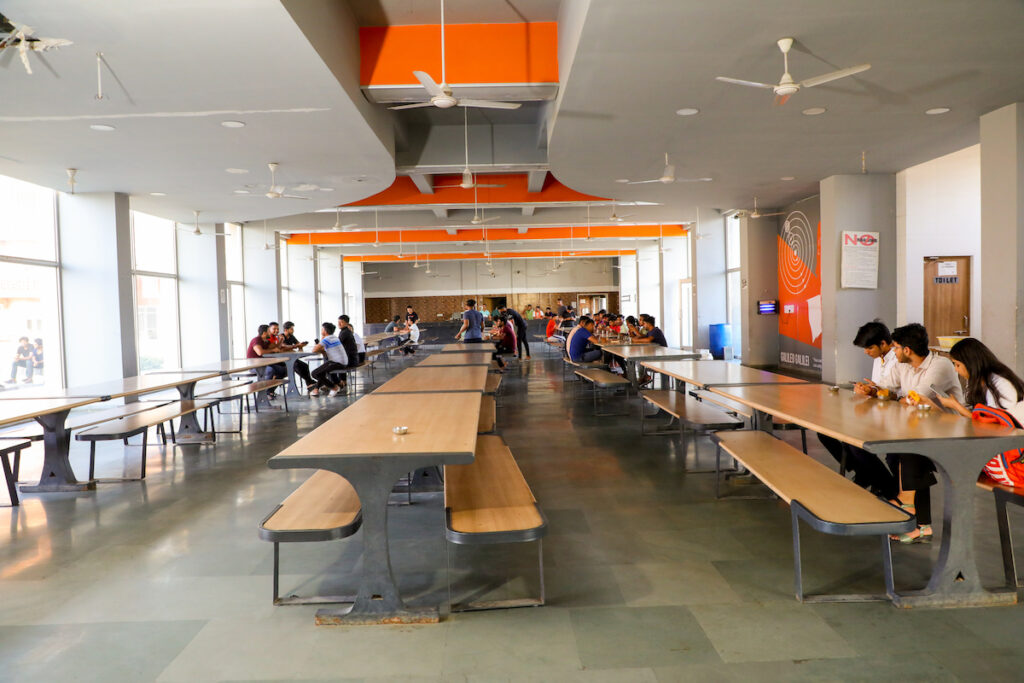
Here is a detailed overview of the general eligibility criteria for each level:
Educational Qualifications
- High School Completion: Applicants must have completed high school (12 years of schooling) or an equivalent qualification.
- Core Subjects: Strong foundation in Mathematics, Physics, and Chemistry. Some programs may also require a background in Computer Science.
- Minimum Marks/Cutoff: Typically, a minimum percentage or grade point average (GPA) in high school, often around 50-70% or equivalent, depending on the institution.
Entrance Exams
- India: Joint Entrance Examination (JEE) Main and JEE Advanced for admission to institutions like the IITs and NITs. State-level entrance exams (e.g., MHT-CET, KCET) for state universities.
- United States: SAT or ACT scores are commonly required.
- United Kingdom: A-levels with strong performance in relevant subjects.
- Other Countries: Similar standardized tests or national exams specific to the country.
Language Proficiency
- English Proficiency Tests: For non-native English speakers, proficiency in English must be demonstrated through tests like TOEFL or IELTS.
Additional Requirements
- Letters of Recommendation: Some universities may require letters of recommendation from teachers or counselors.
- Personal Statement/Essay: Many institutions ask for a personal statement or essay to understand the applicant’s motivation and suitability for the program.
- Interviews: Some competitive programs might conduct interviews.
Top Entrance Exams for Computer Science Engineering
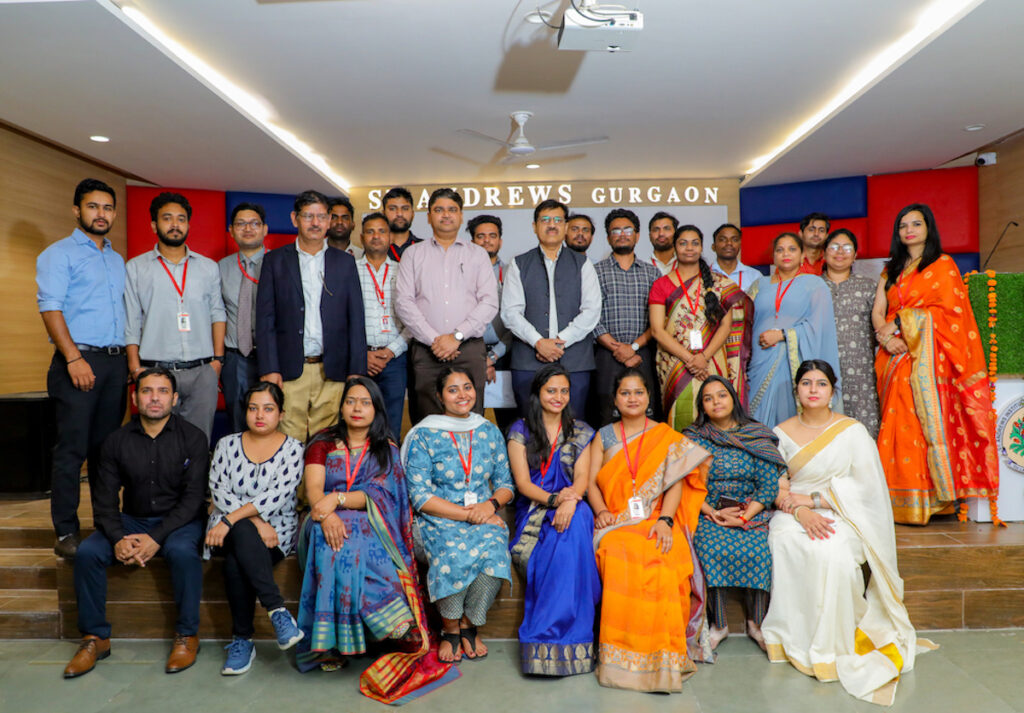
Here are some of the top entrance exams:
Joint Entrance Examination (JEE) Main
- Conducted By: National Testing Agency (NTA)
- Purpose: Admission to NITs, IIITs, and other centrally funded technical institutions, and eligibility test for JEE Advanced.
- Frequency: Twice a year (January and April)
- Format: Multiple-choice and numerical questions in Physics, Chemistry, and Mathematics.
Joint Entrance Examination (JEE) Advanced
- Conducted By: One of the IITs on a rotational basis
- Purpose: Admission to the Indian Institutes of Technology (IITs).
- Eligibility: Top 2,50,000 JEE Main qualifiers.
- Frequency: Once a year
- Format: Multiple-choice and numerical questions in Physics, Chemistry, and Mathematics.
BITS Admission Test (BITSAT)
- Conducted By: Birla Institute of Technology and Science (BITS), Pilani
- Purpose: Admission to BITS Pilani campuses (Pilani, Goa, Hyderabad).
- Frequency: Once a year
- Format: Online test with questions in Physics, Chemistry, Mathematics, English proficiency, and Logical reasoning.
VIT Engineering Entrance Examination (VITEEE)
- Conducted By: Vellore Institute of Technology (VIT)
- Purpose: Admission to VIT campuses (Vellore, Chennai, Amaravati, Bhopal).
- Frequency: Once a year
- Format: Online test with questions in Physics, Chemistry, Mathematics/Biology, English, and Aptitude.
State-Level Entrance Exams
- Examples: MHT-CET (Maharashtra), KCET (Karnataka), WBJEE (West Bengal), EAMCET (Andhra Pradesh and Telangana).
- Purpose: Admission to state engineering colleges.
- Format: Typically includes questions in Physics, Chemistry, and Mathematics.
Top Colleges in India for B.Tech CSE
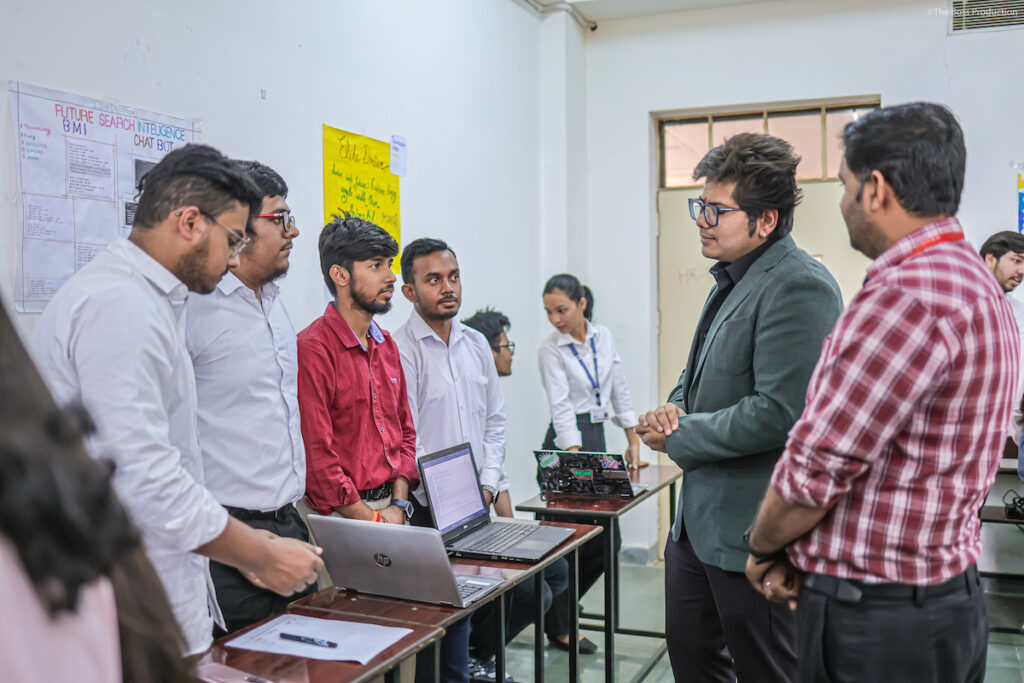
Here are some of the top computer science engineering colleges in India known for their robust CSE programs, state-of-the-art infrastructure, distinguished faculty, and excellent placement records:
Indian Institutes of Technology (IITs)
Highlights: Known for its rigorous curriculum, cutting-edge research, and high-profile placements. Offers numerous interdisciplinary programs and research opportunities in AI, machine learning, and data science. Research areas include cybersecurity, computer vision, and robotics.
St. Andrews Institute of Technology and Management (SAITM), Gurgaon
- Location: Haryana
- Highlights: SAITM offers a strong B.Tech CSE program with a rich academic heritage, advanced laboratories, and a robust placement track record.
National Institutes of Technology (NITs)
Highlights: Known for its high academic standards and excellent placement records. Offers numerous research opportunities in collaboration with industry partners. Active in research areas such as software engineering, AI, and cybersecurity.
Indian Institutes of Information Technology (IIITs)
Highlights: Known for its emphasis on research and development. Offers specialized programs in areas like data science, robotics, and machine learning. Strong industry ties and excellent placement records. Known for its industry-oriented programs and strong placement support.
Other Prestigious Institutions
Delhi Technological University (DTU)
- Location: New Delhi
- Highlights: Offers a strong curriculum with a focus on research and practical skills. Known for its high placement rates and strong industry connections.
Jamia Millia Islamia (JMI)
- Location: New Delhi
- Highlights: Offers a comprehensive CSE program with strong faculty and research opportunities. Known for its inclusive campus culture and good placement records.
Top Government Colleges in India for B.Tech CSE
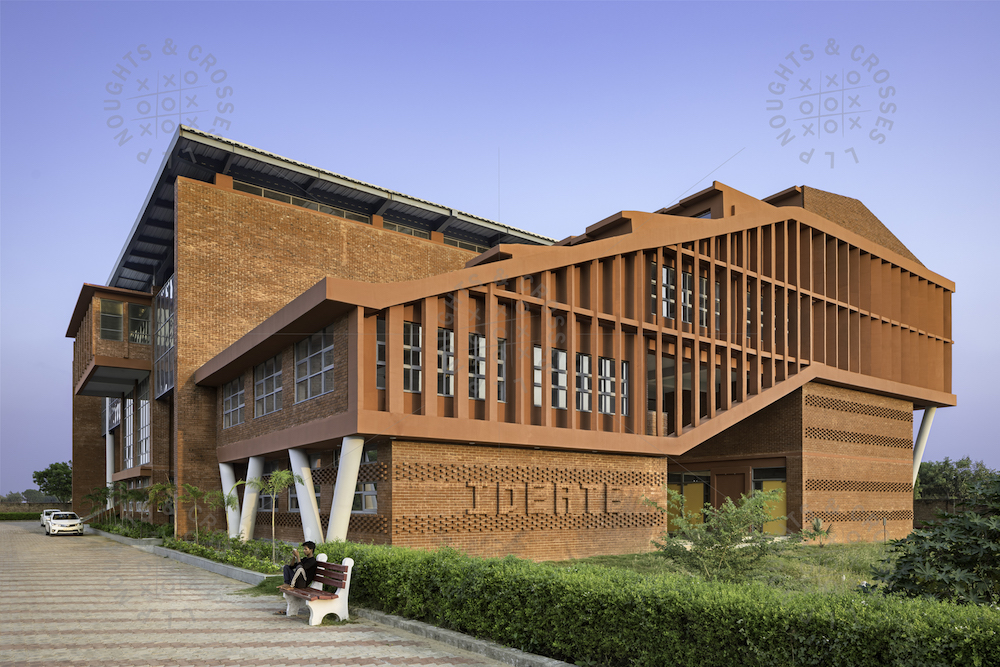
Here are some of the top government colleges in India known for their B.Tech Computer Science Engineering (CSE) programs:
Indian Institutes of Technology (IITs)
St. Andrews Institute of Technology and Management (SAITM), Gurgaon
SAITM offers a strong B.Tech CSE program with a rich academic heritage, advanced laboratories, and a robust placement track record.
National Institutes of Technology (NITs)
Indian Institutes of Information Technology (IIITs)
Delhi Technological University (DTU), Delhi
DTU offers a highly regarded B.Tech CSE program with modern facilities, experienced faculty, and strong industry connections.
Netaji Subhas University of Technology (NSUT), Delhi
Formerly known as NSIT, NSUT offers a competitive B.Tech CSE program with a focus on practical learning and industry exposure.
Top Private Colleges in India for B.Tech CSE
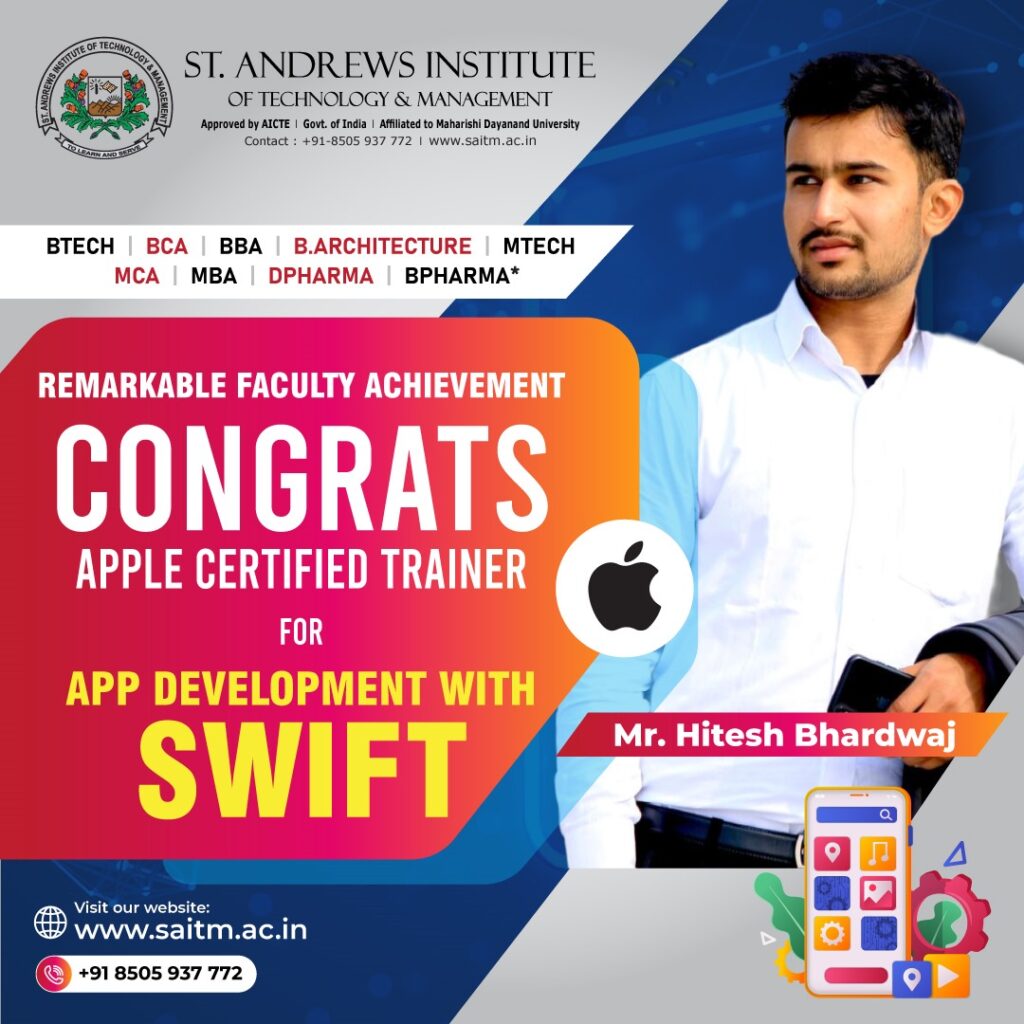
Here are some of the top BTech CSE colleges in India among private institutions:
Birla Institute of Technology and Science (BITS), Pilani
Renowned for its CSE program with a strong focus on research and industry collaborations.
Offers state-of-the-art infrastructure, experienced faculty, and excellent placement records.
St. Andrews Institute of Technology and Management (SAITM), Gurgaon
Known for its specialized B.Tech programs in CSE and other IT-related fields.
Emphasizes research-oriented teaching, innovative projects, and industry internships.
Vellore Institute of Technology (VIT), Vellore
Offers one of the most sought-after B.Tech CSE programs in India.
Provides modern infrastructure, industry partnerships, and high placement rates in leading tech companies.
Birla Institute of Technology (BIT), Mesra
Offers a rigorous B.Tech CSE curriculum with a blend of theoretical knowledge and practical skills.
Has a strong reputation for academic excellence and industry-oriented training.
Thapar Institute of Engineering and Technology, Patiala
Known for its strong emphasis on research and innovation in the field of CSE.
Offers advanced labs, international collaborations, and opportunities for interdisciplinary studies.
Computer Science Engineering Course Fees
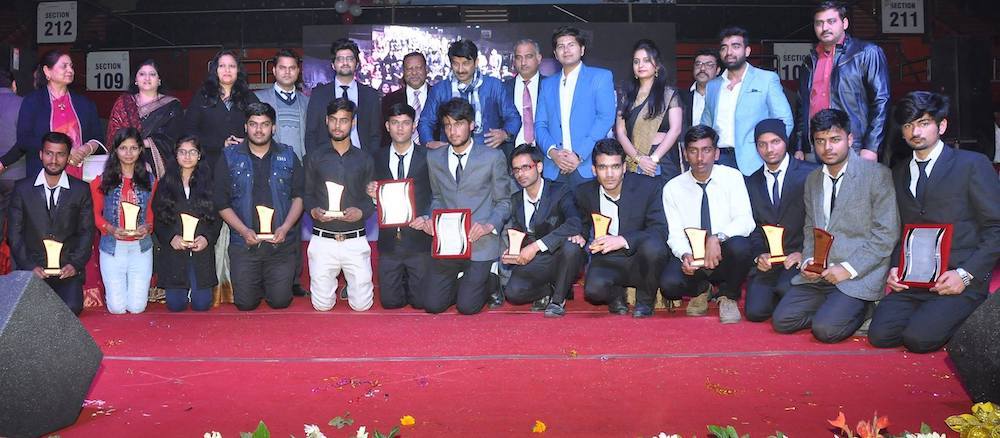
Here’s a rough estimate:
Government Colleges
Fees can range from around ₹10,000 to ₹50,000 per year for undergraduate courses (B.Tech).
Private Colleges
Fees in private colleges can vary significantly and can range from ₹50,000 to ₹2,00,000 or more per year for undergraduate courses in CSE.
Top Institutes
Premier institutes like IITs (Indian Institutes of Technology) and NITs (National Institutes of Technology) generally have lower fees for Indian nationals (around ₹2-3 lakhs for the entire course) but are highly competitive to get into.
Additional Costs
Apart from tuition fees, students may also need to consider additional costs such as hostel fees, examination fees, and other miscellaneous expenses.
Career Scope in Computer Science and Engineering
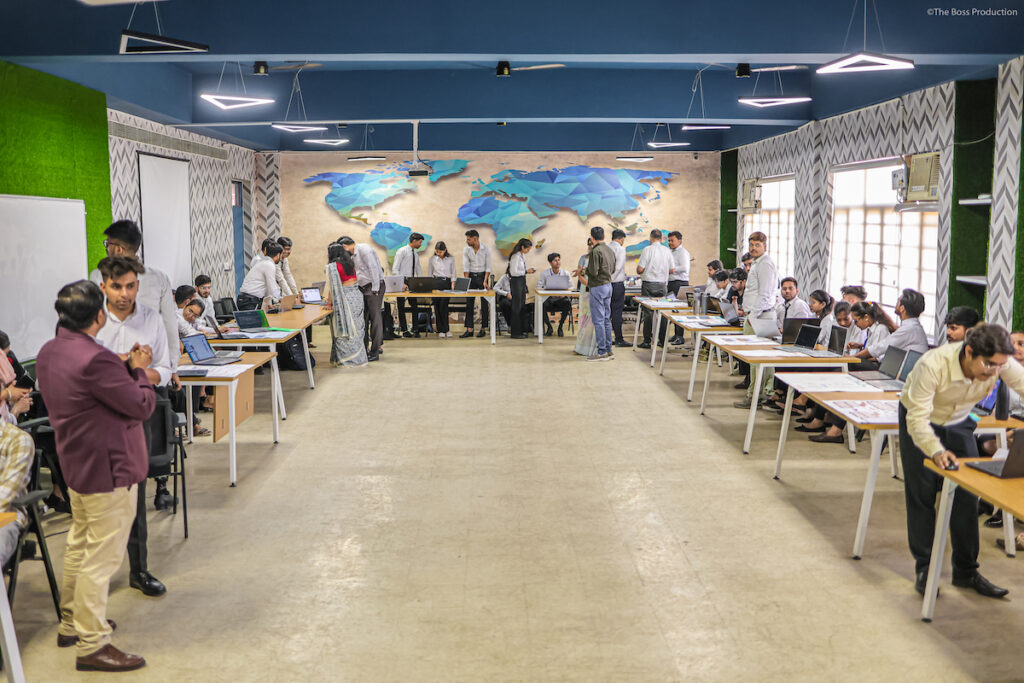
Here’s an overview of the career scope in CSE:
High Demand
There is a consistently high demand for CSE graduates globally, driven by the rapid growth of technology and digital transformation across sectors.
Diverse Industries
CSE graduates find opportunities in diverse industries such as IT services, software development, finance, healthcare, telecommunications, e-commerce, gaming, education, and more.
Job Roles
Graduates can pursue roles such as software developer/engineer, data scientist/analyst, cybersecurity analyst, systems administrator/engineer, web developer/designer, AI/machine learning engineer, and many others.
Emerging Technologies
The field constantly evolves with emerging technologies such as artificial intelligence (AI), machine learning (ML), cybersecurity, blockchain, cloud computing, Internet of Things (IoT), and augmented/virtual reality (AR/VR).
Entrepreneurship
CSE graduates often have opportunities to innovate and start their own tech companies or startups, leveraging their skills in software development, problem-solving, and understanding of technology trends.
Global Opportunities
CSE is a globally recognized discipline, allowing graduates to pursue careers abroad, work on international projects, or collaborate with multinational tech companies.
Continuous Learning
The dynamic nature of CSE requires continuous learning and upskilling in new technologies and methodologies to stay relevant and competitive in the job market.
Salary Potential
Careers in CSE generally offer competitive salaries and benefits, reflecting the high demand for tech computer science expertise and specialized skills in the industry.
Job Profiles after Computer Science Engineering

Here are some common job profiles:
Software Developer/Engineer
- Description: Develops software applications, systems, and solutions. Responsibilities include coding, testing, debugging, and maintaining software.
- Skills Needed: Programming languages (like Java, Python, C++, etc.), software development frameworks, problem-solving skills, understanding of algorithms and data structures.
Data Scientist/Data Analyst
- Description: Analyzes complex data to extract insights and make data-driven decisions. Data Scientists focus on machine learning models and predictive analytics, while Data Analysts focus on analyzing data for business insights.
- Skills Needed: Statistical analysis, machine learning algorithms, data visualization tools (like Tableau, Power BI), proficiency in languages like Python or R, database querying (SQL).
Cybersecurity Analyst/Engineer
- Description: Protects computer systems, networks, and data from security breaches and cyberattacks. Implements security measures, monitors for threats, and responds to incidents.
- Skills Needed: Network security, penetration testing, cryptography, knowledge of security protocols and tools (like Firewalls, IDS/IPS), ethical hacking techniques.
Systems Engineer/Administrator
- Description: Manages and maintains computer systems, servers, and networks within an organization. Ensures uptime, security, and efficient operation of IT infrastructure.
- Skills Needed: System administration (Linux/Unix, Windows), networking protocols (TCP/IP, DNS, DHCP), virtualization technologies (VMware, Hyper-V), scripting languages (Shell scripting, PowerShell).
Web Developer/Designer
- Description: Designs and develops websites and web applications. Works on front-end (client-side) and back-end (server-side) technologies.
- Skills Needed: HTML, CSS, JavaScript, front-end frameworks (like React, Angular), back-end development (Node.js, PHP, Python), web design principles, UI/UX design.
Software Quality Assurance (QA) Engineer
- Description: Ensures the quality and functionality of software products through testing and quality assurance processes. Identifies bugs, performs regression testing, and ensures compliance with specifications.
- Skills Needed: Test automation tools (Selenium, JUnit), manual testing techniques, bug tracking systems (JIRA, Bugzilla), understanding of SDLC and testing methodologies.
Machine Learning Engineer
- Description: Designs and builds machine learning models and systems. Works on data preprocessing, feature engineering, model selection, training, and deployment of machine learning solutions.
- Skills Needed: Machine learning algorithms (supervised/unsupervised learning, neural networks), programming languages (Python, R), frameworks (TensorFlow, PyTorch), data manipulation and analysis.
Database Administrator (DBA)
- Description: Manages databases to ensure data availability, security, and performance. Designs schemas, optimizes queries, and maintains database systems.
- Skills Needed: Database management systems (like MySQL, PostgreSQL, Oracle), SQL querying, database tuning, backup and recovery procedures.
AI Engineer/Research Scientist
- Description: Develops and implements artificial intelligence algorithms and systems. Works on tasks such as natural language processing, computer vision, and reinforcement learning.
- Skills Needed: Deep learning frameworks (TensorFlow, PyTorch), AI algorithms, neural networks, data preprocessing, model evaluation and optimization.
IT Consultant/Technical Consultant
- Description: Provides strategic advice and solutions to organizations on IT-related issues. Assists in system integration, IT infrastructure planning, and digital transformation initiatives.
- Skills Needed: Business acumen, project management, communication skills, knowledge of IT systems and technologies, problem-solving abilities.
Top Recruiters for CSE Graduates
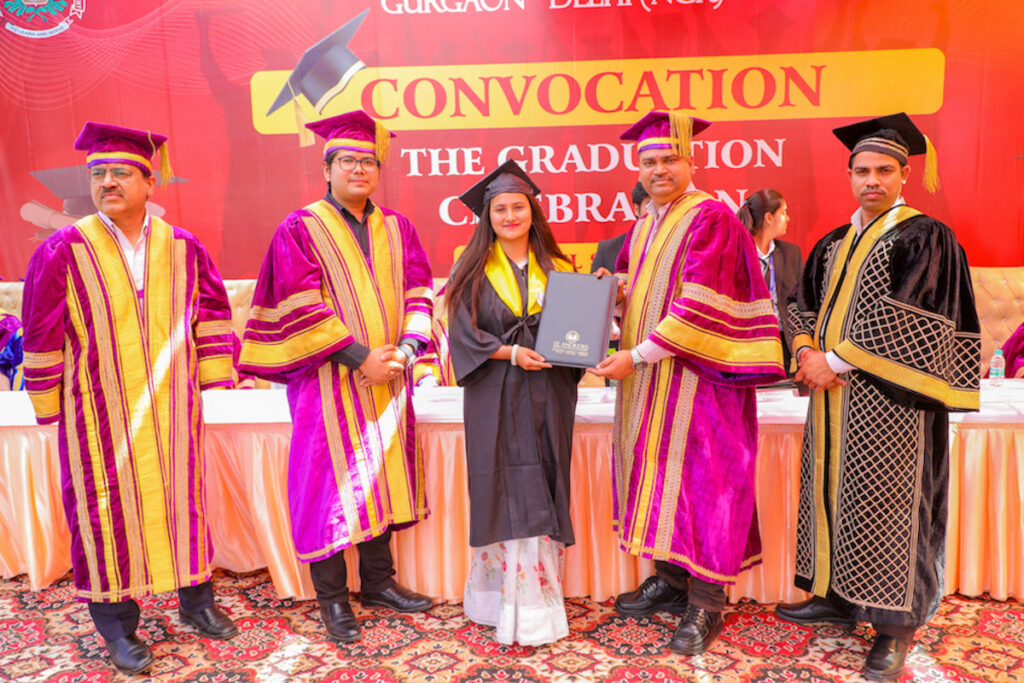
Some of the prominent recruiters are:
- Tech Giants
- Microsoft
- Amazon
- Apple
- IT Services Companies
- Tata Consultancy Services (TCS)
- Infosys
- Wipro
- HCL Technologies
- Cognizant
- Product Companies
- Adobe
- Intel
- Cisco
- Oracle
- SAP
- Financial Services
- Goldman Sachs
- JP Morgan Chase
- Morgan Stanley
- Barclays
- Citibank
- E-commerce and Retail
- Flipkart
- Amazon India
- Walmart Labs
- Paytm
- Myntra
- Telecommunications
- Verizon
- AT&T
- Vodafone
- Ericsson
- Nokia
- Startups and Tech Innovators
- Ola
- Swiggy
- Zomato
- Byju’s
- Zoho
Salary for CSE Graduates
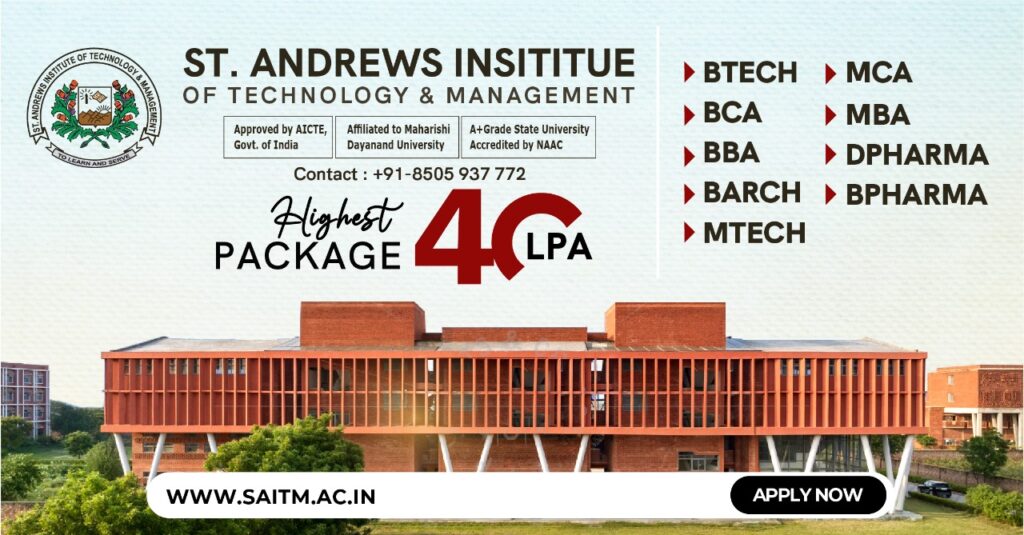
Here’s a more detailed breakdown:
Entry-Level Positions
- Fresh CSE graduates typically start with entry-level roles such as software engineer, web developer, or systems analyst.
- In India, entry-level salaries generally range from ₹3-6 lakhs per annum.
- Salaries can vary based on the company’s location (metro cities tend to offer higher salaries), the reputation of the employer, and the graduate’s academic performance and skills.
Mid-Level Positions
- With 2-5 years of experience, CSE professionals can move into mid-level positions such as senior software engineer, software developer, or project manager.
- Mid-level salaries often range from ₹8-15 lakhs per annum depending on factors like expertise in specialized domains (e.g., AI, cybersecurity), managerial responsibilities, and industry demand.
Senior-Level Positions
- Senior roles such as software architect, technical lead, or IT director are attainable with 5+ years of experience and additional qualifications.
- Salaries for senior CSE professionals can exceed ₹20 lakhs per annum, especially in top tech companies, multinational corporations, or specialized sectors like finance, healthcare, or e-commerce.
Factors Influencing Salary
- Location: Salaries vary significantly by city and region. Metro cities and tech hubs generally offer higher compensation due to cost of living and demand.
- Company Size and Type: Large tech companies, IT services firms, and multinational corporations often offer higher salaries and additional perks compared to startups or smaller firms.
- Skills and Specializations: Proficiency in emerging technologies such as AI, machine learning, blockchain, or cybersecurity can command higher salaries due to high demand and specialized knowledge.
- Education and Certification: Advanced degrees (like MTech or MBA) and industry certifications can also positively impact salary negotiations.
Required Skillset for Computer Science Engineering
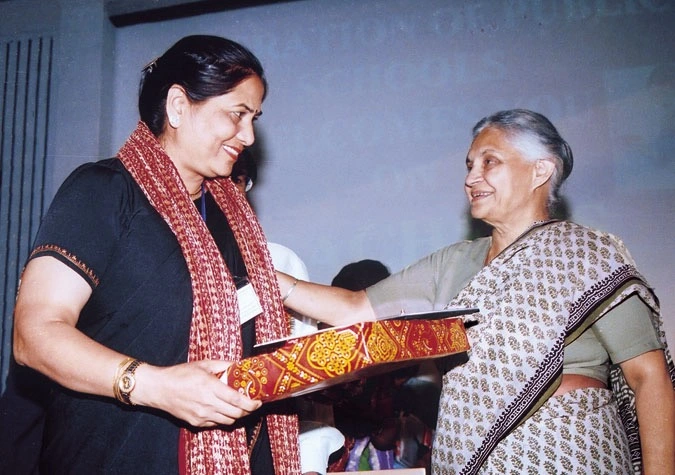
Here are the key skills required for success in CSE:
Programming Languages
Proficiency in at least one high-level programming language (e.g., Python, Java, C++) is crucial. Understanding of programming paradigms (procedural, object-oriented, functional) and ability to write efficient and clean code.
Data Structures and Algorithms
Strong understanding of fundamental data structures (arrays, linked lists, trees, graphs, stacks, queues) and algorithms (searching, sorting, dynamic programming, graph algorithms). Ability to analyze algorithm complexity and optimize code.
Database Managemen
Knowledge of database systems (SQL and NoSQL databases), understanding of database design principles (normalization, indexing), and proficiency in writing and optimizing SQL queries.
Operating Systems
Familiarity with concepts of operating systems (process management, memory management, file systems, concurrency) and practical experience with Unix/Linux command-line operations.
Computer Networks
Understanding of networking concepts (TCP/IP stack, OSI model, routing, switching), network protocols (HTTP, FTP, DNS), and experience with network configuration and troubleshooting.
Software Engineering
Knowledge of application development methodologies (Agile, Scrum), version control systems (Git), software design patterns, and best practices in software engineering (testing, debugging, code reviews).
Web Technologies
Proficiency in web development technologies such as HTML, CSS, JavaScript, and frameworks/libraries like React, Angular, or Vue.js. Understanding of server-side development with technologies like Node.js, Flask, or Django.
Cybersecurity
Awareness of cybersecurity principles and best practices, understanding of common threats and vulnerabilities, and knowledge of security tools and techniques for securing applications and networks.
Machine Learning and AI
Basic understanding of machine learning algorithms, data preprocessing, model evaluation, and proficiency in using machine learning libraries (e.g., TensorFlow, Scikit-learn) and frameworks.
Problem-Solving Skills
Ability to break down complex problems, analyze requirements, and devise effective solutions using computational thinking and logical reasoning.
Communication and Collaboration
Effective communication skills to articulate technical concepts, collaborate in teams, and engage in discussions with stakeholders from diverse backgrounds.
Continuous Learning
Willingness and ability to keep up with rapidly evolving technologies, learn new tools and frameworks, and adapt to industry trends and innovations.
B.Tech CSE VS Other B.Tech Courses

Comparing B.Tech in Computer Science Engineering (CSE) with other B.Tech courses provides a comprehensive understanding of their distinct focuses, skill sets, and career opportunities. Here’s a detailed comparison:
B.Tech in Computer Science Engineering (CSE):
Focus:
- CSE emphasizes application development, algorithms, data structures, computer systems, and programming languages.
- It covers areas such as artificial intelligence, machine learning, data science, cybersecurity, and software engineering.
Skill Sets:
- Proficiency in programming languages like Python, Java, C++, and JavaScript.
- Strong analytical and problem-solving skills.
- Knowledge of application development life cycles, methodologies (like Agile and DevOps), and software engineering principles.
- Understanding of computer hardware, operating systems, and networks.
- Skills in database management, web development, and cloud computing.
Career Opportunities:
- Software Developer/Engineer: Design, develop, and maintain software applications.
- Data Scientist/Analyst: Analyze complex data to provide insights and support decision-making.
- Cybersecurity Specialist: Protect systems and networks from cyber threats.
- Systems Architect: Design and integrate complex IT systems.
- IT Consultant: Provide strategic advice on IT and business processes.
B.Tech in Electronics and Communication Engineering (ECE):
Focus:
- ECE centers on electronic circuits, communication systems, signal processing, and embedded systems.
- It includes analog and digital communication, microprocessors, VLSI design, and microwave engineering.
Skill Sets:
- Circuit design and analysis.
- Knowledge of communication protocols, wireless communication, and signal processing techniques.
- Skills in microcontroller programming and hardware interfacing.
- Understanding of semiconductor devices and electronic instrumentation.
Career Opportunities:
- Electronics Engineer: Design and develop electronic equipment and systems.
- Communication Engineer: Work on telecommunications and networking projects.
- Embedded Systems Developer: Design embedded systems for various applications.
- Network Engineer: Manage and maintain computer networks.
- Roles in telecommunications, consumer electronics, automotive, aerospace, and defense industries.
B.Tech in Mechanical Engineering:
Focus:
- Mechanical Engineering involves the design, analysis, manufacturing, and maintenance of mechanical systems.
- It covers thermodynamics, fluid mechanics, materials science, machine design, and robotics.
Skill Sets:
- Proficiency in CAD/CAM software for designing mechanical components.
- Understanding of manufacturing processes, material properties, and quality control.
- Skills in mechanical system design, analysis, and troubleshooting.
- Knowledge of thermodynamic cycles, fluid dynamics, and heat transfer.
Career Opportunities:
- Mechanical Engineer: Design and develop mechanical systems and machinery.
- Design Engineer: Create detailed designs of mechanical components and systems.
- Production Engineer: Oversee manufacturing processes and optimize production.
- Maintenance Engineer: Ensure the proper functioning of machinery and equipment.
- Roles in automotive, aerospace, manufacturing, energy, and robotics industries.
B.Tech in Civil Engineering:
Focus:
- Civil Engineering deals with the design, construction, and maintenance of infrastructure projects.
- It includes structural engineering, geotechnical engineering, transportation engineering, and environmental engineering.
Skill Sets:
- Knowledge of construction materials, methods, and project management.
- Skills in structural analysis and design, including the use of software like AutoCAD and STAAD Pro.
- Proficiency in surveying techniques and tools.
- Understanding of environmental regulations and sustainable design practices.
Career Opportunities:
- Civil Engineer: Plan and oversee construction projects, ensuring they meet technical specifications and safety standards.
- Structural Engineer: Design and analyze structural components to withstand loads and forces.
- Project Manager: Manage construction projects from planning to completion.
- Construction Manager: Supervise construction activities and ensure projects are completed on time and within budget.
Upcoming Trends in B.Tech CSE

Here are some key trends to watch:
Artificial Intelligence (AI) and Machine Learning (ML)
AI and ML continue to dominate as transformative technologies, with applications ranging from natural language processing and computer vision to predictive analytics and autonomous systems.
B.Tech CSE programs are increasingly integrating AI and ML into their curriculum to prepare students for roles in AI research, development, and implementation.
Cybersecurity
With the rise in cyber threats and data breaches, cybersecurity has become critical across all sectors.
B.Tech CSE students are focusing on learning advanced cybersecurity concepts such as ethical hacking, cryptography, secure coding practices, and network security to safeguard digital assets and privacy.
Blockchain Technology
Blockchain is gaining traction beyond cryptocurrencies, with applications in supply chain management, healthcare records, smart contracts, and more.
B.Tech CSE programs are exploring blockchain fundamentals, decentralized applications (DApps), and consensus algorithms to train future developers and computer science engineers in this disruptive technology.
Internet of Things (IoT)
IoT is revolutionizing industries by connecting devices and enabling data-driven decision-making. B.Tech CSE students are studying IoT architectures, protocols, sensor networks, and edge computing to design and deploy smart systems in fields like smart cities, healthcare monitoring, and industrial automation.
Cloud Computing
Cloud computing continues to be a cornerstone of modern IT infrastructure, offering scalability, cost-efficiency, and flexibility.
B.Tech CSE courses are focusing on cloud architecture, virtualization, containerization (e.g., Docker, Kubernetes), and hybrid cloud solutions to prepare students for roles in cloud management, DevOps, and cloud-native application development.
Big Data Analytics
As data volumes grow exponentially, B.Tech CSE programs are emphasizing skills in big data processing, data mining, predictive analytics, and visualization techniques.
Students learn to extract insights from large datasets to drive business decisions and optimize processes across industries.
Augmented Reality (AR) and Virtual Reality (VR)
AR and VR technologies are transforming entertainment, education, training, and healthcare. B.Tech CSE students are exploring AR/VR development platforms, 3D modeling, spatial computing, and immersive user interfaces to create interactive and engaging experiences.
5G Technology
The rollout of 5G networks promises ultra-fast speeds, low latency, and massive connectivity, enabling innovations like autonomous vehicles, smart infrastructure, and real-time communications.
B.Tech CSE programs are delving into 5G architecture, network slicing, IoT integration, and applications in mobile computing and edge computing.
Internship and Project Opportunities in B Tech CSE

Here are some ideas and resources to explore:
Internship Opportunities
Tech Companies:
Major tech companies like Google, Microsoft, Amazon, and Facebook offer competitive internships. Their programs typically provide hands-on experience, mentorship, and potential job offers.
Startups:
Interning at a startup can provide a broad range of experiences. Websites like AngelList and LinkedIn can help you find such opportunities.
Research Internships:
Many universities offer research internships in various fields of computer science. Programs like the MITACS Globalink Research Internship in Canada or DAAD RISE in Germany are excellent options.
Government and Public Sector:
Institutions like ISRO, DRDO, and other national research organizations offer internships.
Non-Profit Organizations:
Many non-profits seek tech interns to help with website development, app creation, and data analysis.
Project Opportunities
Open Source Contributions:
Contributing to open-source projects on platforms like GitHub can help you gain practical experience and recognition in the tech community.
Hackathons:
Participating in hackathons can provide intense, hands-on experience in developing projects from scratch. Look for events on Devpost, Major League Hacking (MLH), or local university events.
University Projects:
Collaborate with professors and peers on university-led projects. These can sometimes lead to published papers or patents.
Personal Projects:
Building your own projects based on your interests, such as developing a mobile app, creating a machine learning model, or building a website, can be highly beneficial.
Freelance Projects:
Platforms like Upwork or Fiverr offer opportunities to work on real-world projects, which can be an excellent way to
Top Reasons to Choose B Tech in Computer Science and Engineering
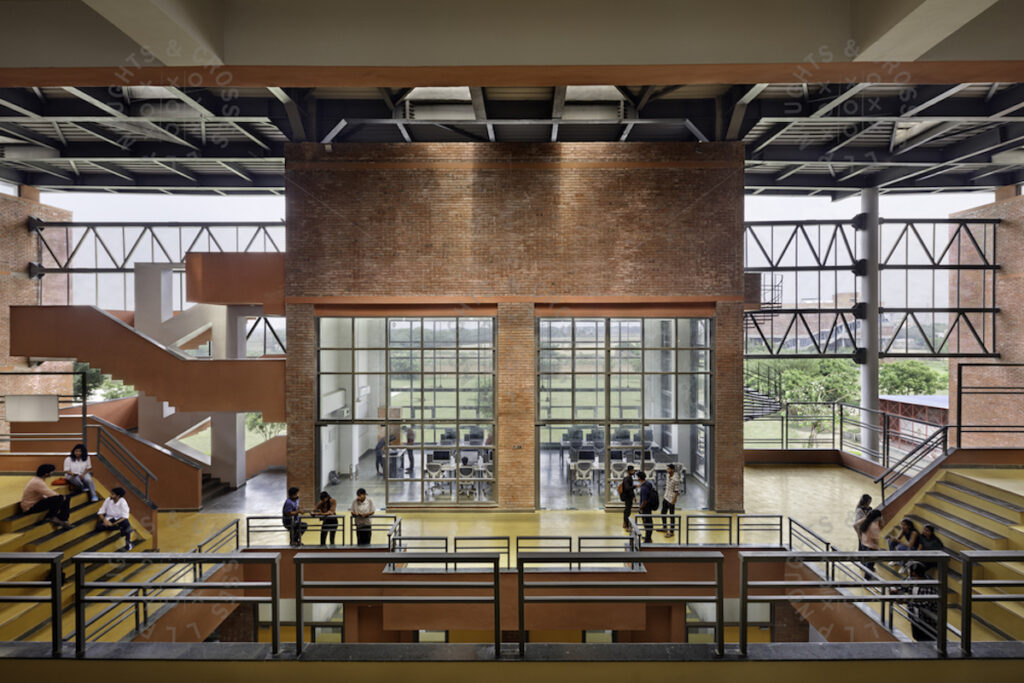
Here are some top reasons to consider this field:
High Demand for CSE Graduates
- The demand for skilled computer science engineers is consistently high across multiple industries. As technology continues to evolve, the need for professionals who can design, develop, and maintain software and hardware systems remains strong.
Diverse Career Opportunities
- A B.Tech in CSE opens doors to a wide range of career paths, including application development, data science, artificial intelligence, cybersecurity, network engineering, and more. This versatility allows graduates to find roles that suit their interests and skills.
Lucrative Salaries
- Careers in computer science and engineering often come with competitive salaries and attractive benefits. The tech industry is known for offering high-paying jobs, especially for those with strong technical skills and experience.
Innovation and Creativity
- The field of computer science is at the forefront of innovation. Students and professionals have the opportunity to work on cutting-edge technologies and creative solutions that can have a significant impact on society.
Global Opportunities
- Computer science and engineering skills are in demand worldwide, providing graduates with opportunities to work in different countries and cultures. The global nature of the tech industry makes it possible to find employment and collaborate with professionals from around the world.
Interdisciplinary Applications
- CSE knowledge can be applied to various fields such as healthcare, finance, education, entertainment, and more. This interdisciplinary nature allows graduates to contribute to multiple sectors and solve diverse problems.
Continuous Learning and Growth
- Technology is constantly evolving, which means there is always something new to learn. This continuous learning environment can be intellectually stimulating and fulfilling for those who enjoy staying updated with the latest advancements.
Entrepreneurial Opportunities
- With a solid foundation in computer science and engineering, graduates can start their own tech companies or develop innovative products and services. The tech industry is known for its entrepreneurial spirit, and many successful startups have been founded by CSE graduates.
Scholarships and Financial Aid for B Tech Computer Science Students
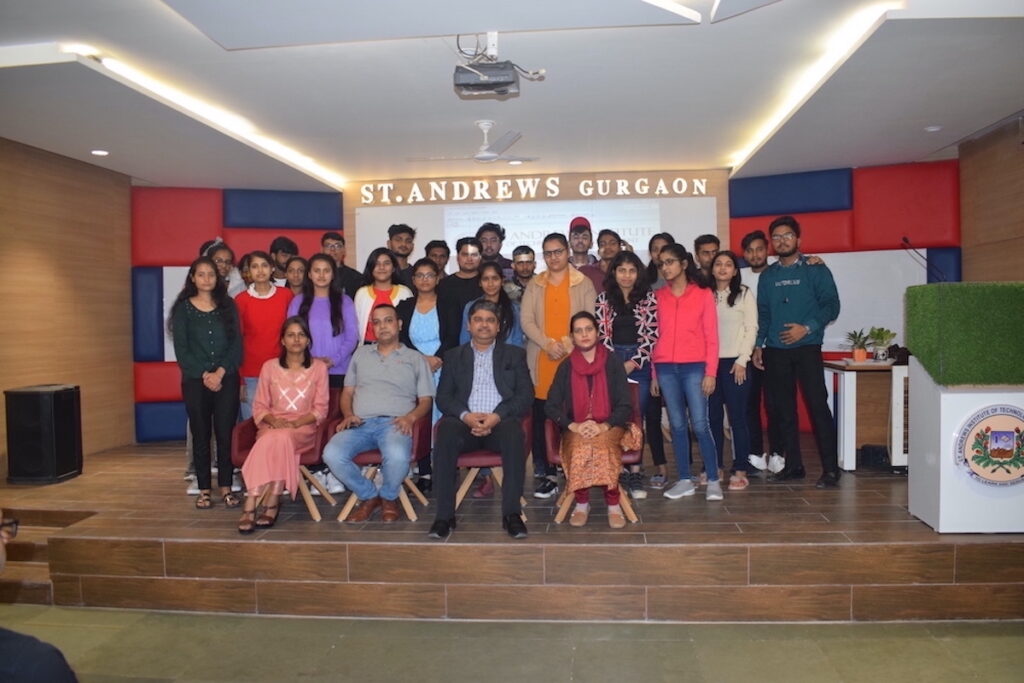
Here are some common types of scholarships and financial aid available:
Merit-Based Scholarships
Institutional Scholarships
- Many universities and colleges offer merit-based scholarships to students who have outstanding academic records or high scores in entrance exams.
- Examples: VIT University’s VITEEE Scholarship, SRM Institute’s SRMEEE Scholarship.
- Government Scholarships
- National and state governments offer scholarships to top-performing students.
- Examples: Central Sector Scheme of Scholarships for College and University Students (CSSS), state-specific scholarships like the Karnataka ePASS.
- Private Scholarships
- Numerous private organizations, companies, and foundations offer scholarships to meritorious students.
- Examples: Tata Scholarship, Aditya Birla Scholarship, and scholarships from companies like Infosys and Wipro.
Need-Based Scholarships
Institutional Aid
- Many institutions offer need-based financial aid packages to students from low-income families.
- Example: Indian Institutes of Technology (IITs) provide need-based financial aid to eligible students.
Government Scholarships
- Scholarships aimed at economically disadvantaged students.
- Examples: National Means-cum-Merit Scholarship, State Government Financial Assistance Schemes.
Scholarships for Specific Categories
Minority Scholarships
- Scholarships specifically for students from minority communities.
- Examples: Maulana Azad National Scholarship for Minority Students, Post-Matric Scholarship Scheme for Minorities.
Women Scholarships
- Scholarships aimed at encouraging female students to pursue engineering.
- Examples: Santoor Women’s Scholarship, L’Oréal India For Young Women in Science Scholarships.
SC/ST Scholarships
- Scholarships for students from Scheduled Castes (SC) and Scheduled Tribes (ST).
- Examples: Post-Matric Scholarship for SC/ST Students, Rajiv Gandhi National Fellowship.
Differently-Abled Scholarships
- Financial aid for students with disabilities.
- Examples: National Fellowship for Persons with Disabilities, Saksham Scholarship Scheme.
Scholarships for Specific Regions or States
State Government Scholarships
- Many state governments offer scholarships to students from their state.
- Examples: Maharashtra State Scholarship, West Bengal Government Scholarships.
Regional Scholarships
- Scholarships aimed at students from specific regions or rural areas.
- Example: North Eastern Council (NEC) Scholarship.
Industry and Corporate Scholarships
Tech Company Scholarships
- Many tech companies offer scholarships to students pursuing degrees in computer science and related fields.
- Examples: Google Scholarships, Microsoft Imagine Cup Scholarships, IBM Scholarships.
Industry Association Scholarships
- Scholarships provided by industry associations.
- Example: NASSCOM Foundation Scholarships.
International Scholarships
Study Abroad Scholarships
- Scholarships for students who wish to pursue part of their degree abroad.
- Examples: Erasmus Mundus Scholarships, Fulbright-Nehru Fellowships.
Global Tech Company Scholarships
- International companies offering scholarships to students worldwide.
- Examples: Facebook Fellowship Program, Adobe Research Women-in-Technology Scholarship.
Industry Demand for Computer Science and Engineering Professionals
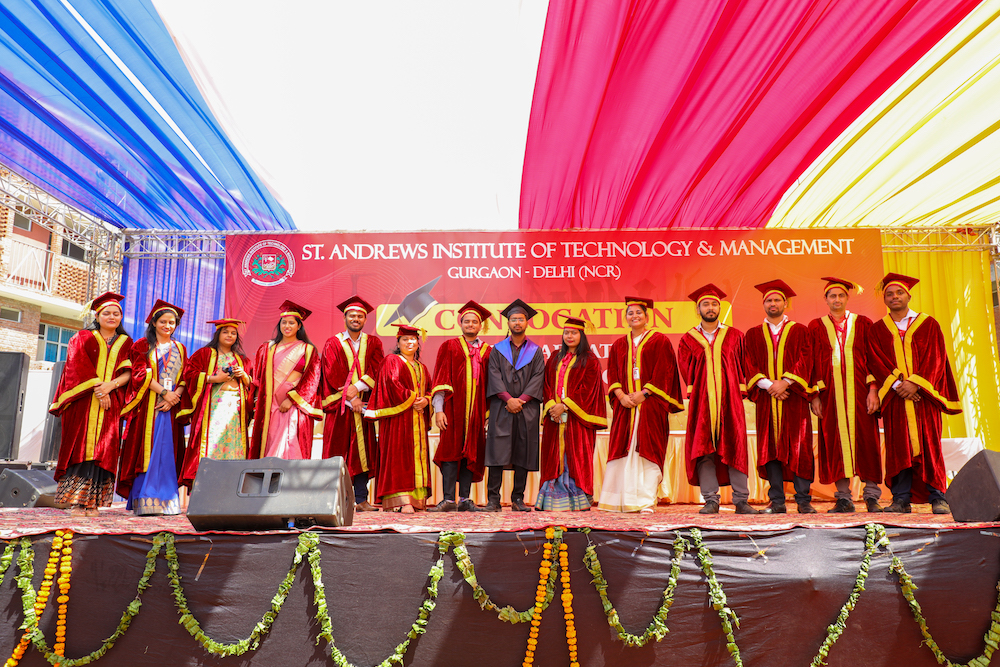
Here are some key points highlighting the industry demand:
Technology Sector Growth
- The technology sector is expanding rapidly, leading to a continuous need for skilled CSE professionals. Companies in application development, IT services, hardware manufacturing, and emerging tech areas like artificial intelligence and blockchain are always seeking talented engineers.
Digital Transformation
- Businesses across all sectors are undergoing digital transformation to improve efficiency, enhance customer experience, and stay competitive. This transformation requires expertise in application development, data analysis, data engineering, cyber security, and cloud computing, increasing the demand for CSE professionals.
Big Data and Data Analytics
- The explosion of data generated by businesses and consumers has created a significant demand for data scientists, data analysts, and machine learning engineers. These roles require a strong foundation in computer science to analyze large datasets and derive actionable insights.
Cybersecurity Needs
- As cyber threats become more sophisticated, the need for cybersecurity professionals has grown exponentially. Organizations need experts to protect sensitive information, secure networks, and develop robust security protocols.
Artificial Intelligence and Machine Learning
- AI and machine learning are transforming various industries, from healthcare to finance to automotive. There is a high demand for CSE professionals who can develop and implement AI algorithms and systems.
Cloud Computing
- With the increasing adoption of cloud services, companies require cloud engineers and architects to design, deploy, and manage cloud infrastructure. Knowledge of platforms like AWS, Azure, and Google Cloud is highly sought after.
Internet of Things (IoT)
- The IoT market is growing, with applications in smart homes, industrial automation, healthcare, and more. This growth drives the need for professionals who can develop and manage IoT systems and devices.
E-commerce and Digital Marketing
- The rise of e-commerce platforms and digital marketing has led to a demand for web developers, mobile app developers, and digital marketing analysts. These roles require strong programming skills and an understanding of digital technologies.
Healthcare Technology
- Advances in health tech, such as telemedicine, electronic health records, and medical devices, have increased the demand for CSE professionals in the healthcare sector. These roles often involve developing software and systems to improve patient care and operational efficiency.
Government and Defense
- Government agencies and defense organizations require CSE professionals for various applications, including cybersecurity, data analysis, and the development of advanced defense systems.
FAQs
What does computer science and engineering do?
Computer Science and Engineering (CSE) integrates principles from both computer science and engineering disciplines to design, develop, and innovate computer systems, software applications, and networks. CSE professionals create and optimize algorithms, build efficient software solutions, design computer hardware, and develop robust cybersecurity measures.
They contribute to advancements in artificial intelligence, machine learning, data science, and more, shaping the future of technology across industries. CSE experts tackle complex problems through computational methods, ensuring systems are secure, scalable, and efficient. Their work spans from creating user-friendly applications to advancing cutting-edge research, driving technological progress and innovation globally.
What is the CSE salary?
The salary for Computer Science Engineering (CSE) professionals varies widely based on factors such as job role, location, experience, and the specific industry. On average, entry-level positions in software engineering or IT services typically offer salaries ranging from ₹3-6 lakhs per annum.
With experience and specialization in fields like artificial intelligence, cybersecurity, or data science, salaries can significantly increase, often reaching ₹10-20 lakhs per annum or higher for mid-level roles. Senior positions, such as software architects or project managers, can command salaries exceeding ₹30 lakhs per annum, especially in top tech companies or multinational corporations.
Is computer science and engineering a good course?
Yes, Computer Science and Engineering (CSE) is a highly regarded course. It offers excellent career prospects due to the growing demand for technology professionals in multiple industries. Students gain expertise in programming, data structures, algorithms, artificial intelligence, and more.
CSE graduates can work in diverse fields such as software engineering, computer engineering, data science, cybersecurity, and research. The course also fosters problem-solving and analytical skills, making it versatile and adaptable to technological advancements. With attractive salaries and opportunities for innovation, CSE is a strong choice for those interested in technology and its applications.
What is the scope in Computer Science Engineering?
The scope in Computer Science Engineering (CSE) is vast and dynamic, driven by rapid technological advancements and increasing digitalization across industries.
CSE professionals are in high demand for roles in software engineering, cybersecurity, data analytics, artificial intelligence, and more. With opportunities in tech giants, startups, finance, healthcare, and beyond, CSE offers diverse career paths and global mobility.
Innovations like AI, blockchain, and IoT continue to expand the scope, fostering entrepreneurship and research opportunities. The field’s continuous evolution ensures that CSE graduates remain pivotal in shaping the future of technology, making it a rewarding and promising career choice.
What is BTech Computer Science and engineering?
Bachelor of Technology (B.Tech) in Computer Science and Engineering (CSE) is an undergraduate engineering program that focuses on the principles and applications of computer science.
It covers fundamental topics such as programming, algorithms, data structures, computer architecture, operating systems, and software engineering. Students also gain practical skills in coding, software engineering, database management, and network administration.
The curriculum emphasizes both academic knowledge and hands-on experience, preparing graduates for careers in software engineering, IT services, cybersecurity, data analytics, and more. B.Tech CSE equips students with the skills necessary to innovate, solve complex problems, and contribute to technological advancements in various industries.
Is BTech CSE a good course?
Yes, BTech in Computer Science Engineering (CSE) is an excellent course. It provides a robust foundation in programming, algorithms, data structures, and various advanced technologies like artificial intelligence, machine learning, and cybersecurity.
The course prepares students for high-demand careers in application engineering, data science, IT consulting, and more. With the tech industry’s rapid growth, BTech CSE graduates enjoy abundant job opportunities, competitive salaries, and potential for career advancement.
Additionally, the skills acquired are versatile, allowing graduates to adapt to various technological changes and innovations, making it a valuable and future-proof degree.
What are the career options available after Computer Science Engineering course?
After completing a Computer Science Engineering (CSE) course, graduates can pursue diverse career paths. Common roles include software developer, systems analyst, web developer, database administrator, network engineer, cybersecurity analyst, and AI/machine learning engineer.
They can also work in IT consulting, cloud computing, mobile app development, gaming, and fintech. Advanced roles like data scientist, blockchain developer, DevOps engineer, and project manager offer higher responsibilities and salaries.
Graduates may also opt for entrepreneurship, research, or academia. The versatility of CSE skills ensures ample opportunities in both established tech companies and emerging industries, globally.
What are the different degree Programme in computer science at both undergraduate and postgraduate level?
At both undergraduate and postgraduate levels, computer science offers various degree programs tailored to different career paths and levels of specialization.
Undergraduate programs include Bachelor of Technology (B.Tech) and Bachelor of Engineering (B.E.) in Computer Science Engineering, Bachelor of Science (B.Sc) in Computer Science, and Bachelor of Computer Applications (BCA).
Postgraduate options include Master of Technology (MTech) in Computer Science, Master of Science (M.Sc.) in Computer Science, Master of Computer Applications (MCA), and specialized degrees like Master of Science (MS) or Master of Engineering (ME) with concentrations in areas such as AI, cybersecurity, data science, and application engineering.


